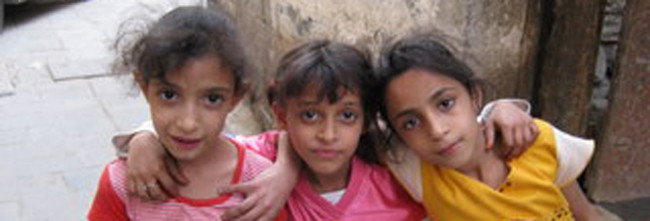
IFES and the Institute for Women’s Policy Research (IWPR) have united their years of experience in research and capacity building to enhance the status of women in the Middle East and North Africa. Through comparative and country-specific surveys, the project measures how women in Lebanon, Morocco and Yemen see themselves as members of society, the economy and the polity. Using the information obtained from the surveys, the project seeks to build capacity of local NGOs seeking to improve women’s well‐being by providing them with tools to develop policy recommendations and skills for working on advocacy campaigns.
The project will deliver on a number of major outcomes:
- Improved availability of useful and effective data to analyze women’s status in politics, economy, society, and family.
- Enhanced research capacity of in-country research organizations to gather and analyze data.
- Strengthened NGO‐capacity to pursue research-based advocacy on behalf of women to influence the policy process around women’s status issues.
- Strengthened networks of highly-skilled advocacy and research organizations on cross‐cutting issues in the region.
- Increased understanding and awareness of the status and needs of women by legislators and other political leaders.
The project occurs in two phases:
The first set of activities involves collection and analysis of data on women’s status in several areas: political representation and participation; economic participation and opportunity; poverty, ownership, and social welfare; and health, violence, and well-being. In each area, IFES will combine existing national-level data with original individual-level data gathered through surveys. In each country, IFES will involve local research and advocacy organizations in defining central concepts and measurement tools used to create the questionnaires. Survey results will be analyzed and reports produced on the findings. IFES hopes the findings and reports will generate recommendations for policy change.
The second phase of the project seeks to increase capacity of local NGOs in each country by building skills for working on media or advocacy campaigns and focusing on activities which target parliament or other decision-makers to advance the status of women. In this phase, IFES will work with parliamentary/civil society experts to develop and provide advanced training sessions on how to interact with members of parliament, government officials and members of the press to present data and policy recommendations.
The Status of Women in the Middle East and North Africa project is funded by the Canadian International Development Agency (CIDA).
- A Rape Case in Tunisia puts the Legal System on Trial
- Women: Another Casualty of Egypt’s Draft Constitution
- Call for Communication to the UN Commission on the Status of Women
- Resources
- SWMENA data used in research
- IFES Releases Data on the Status of Women in Egypt and Tunisia
- SWMENA Conducts Regional Lessons Learned
- SWMENA Featured in Interaction Monday Developments
- IFES Congratulates the 2011 Nobel Peace Prize Laureates
- Public Opinion Data and Political and Legal Reform Opportunities for Women in Yemen, Morocco and Leb
- New Challenges, Opportunities for Women’s Political Participation in the Middle East
- Women Count
- Infographics Help Advocacy Efforts for Women
- MENA Protests Could Help Advance Women’s Rights
- Popular Protests Pave Way for Women’s Rights in Yemen
- Observing International Women’s Day
- IFES Releases Paper on the Use of Gender Quotas in the Arab World
- Collaborating with Visionaries to Improve the Status of Women in Morocco
- Status of Women in the Middle East and North Africa
- Lobby Training Manuals for Activists
